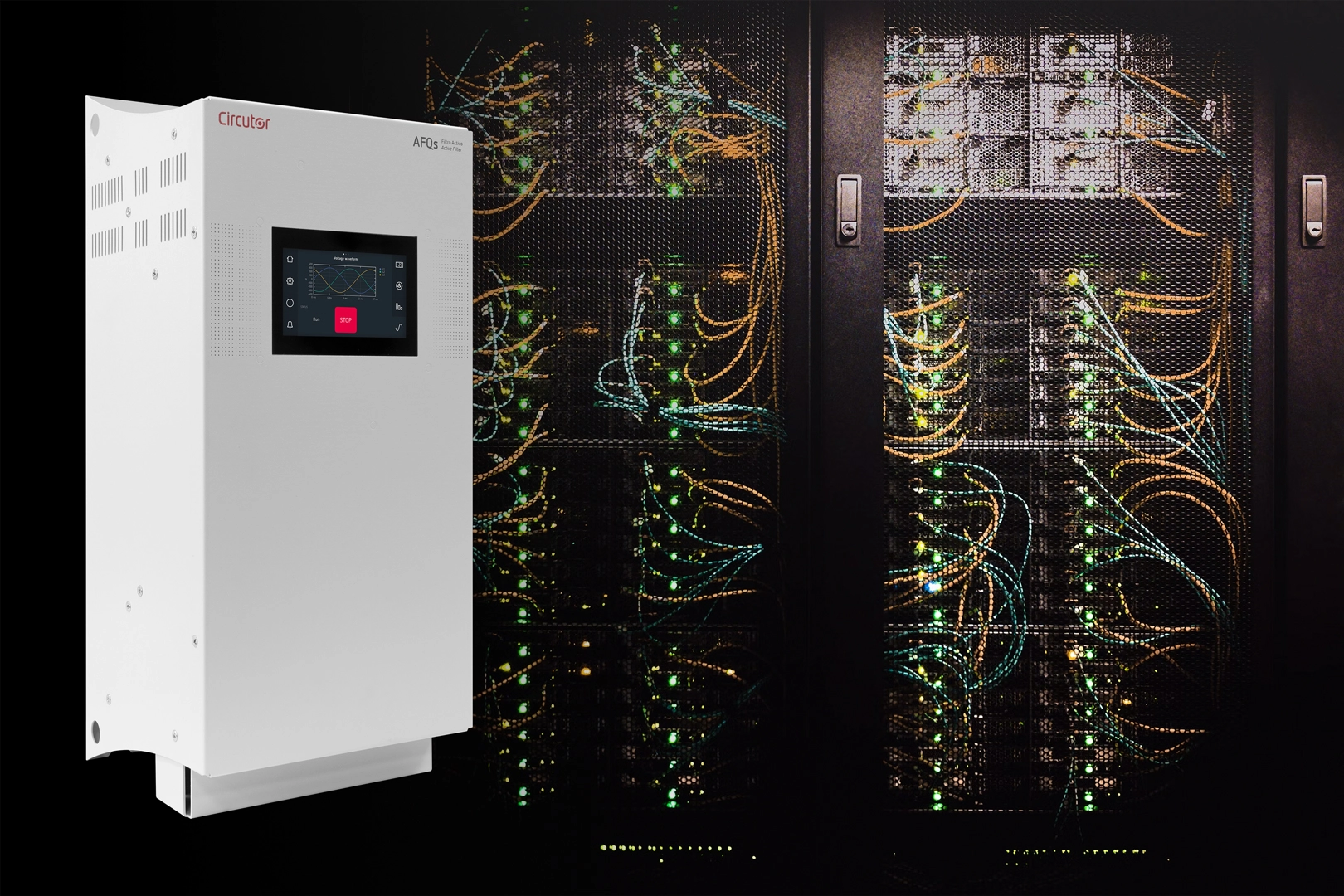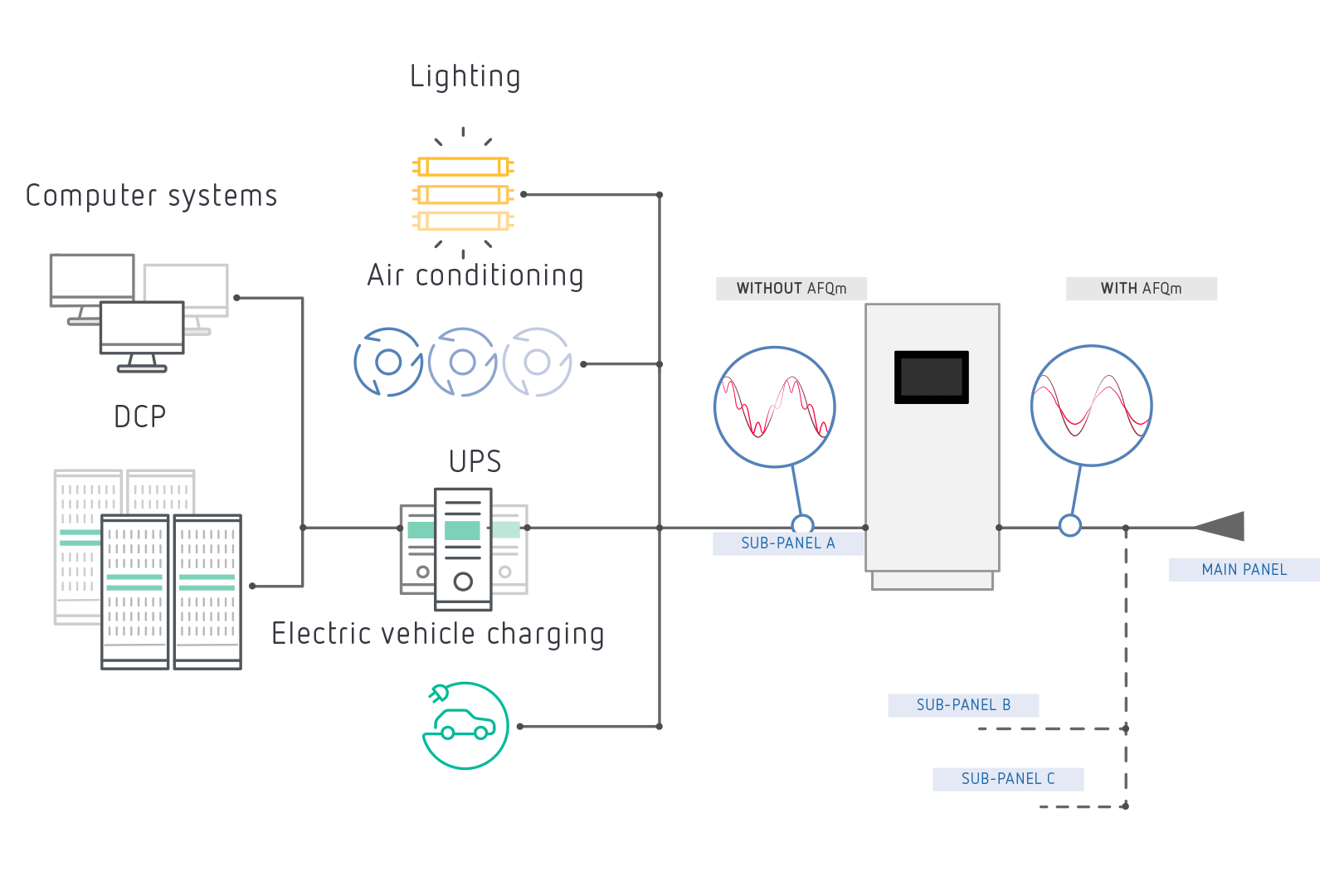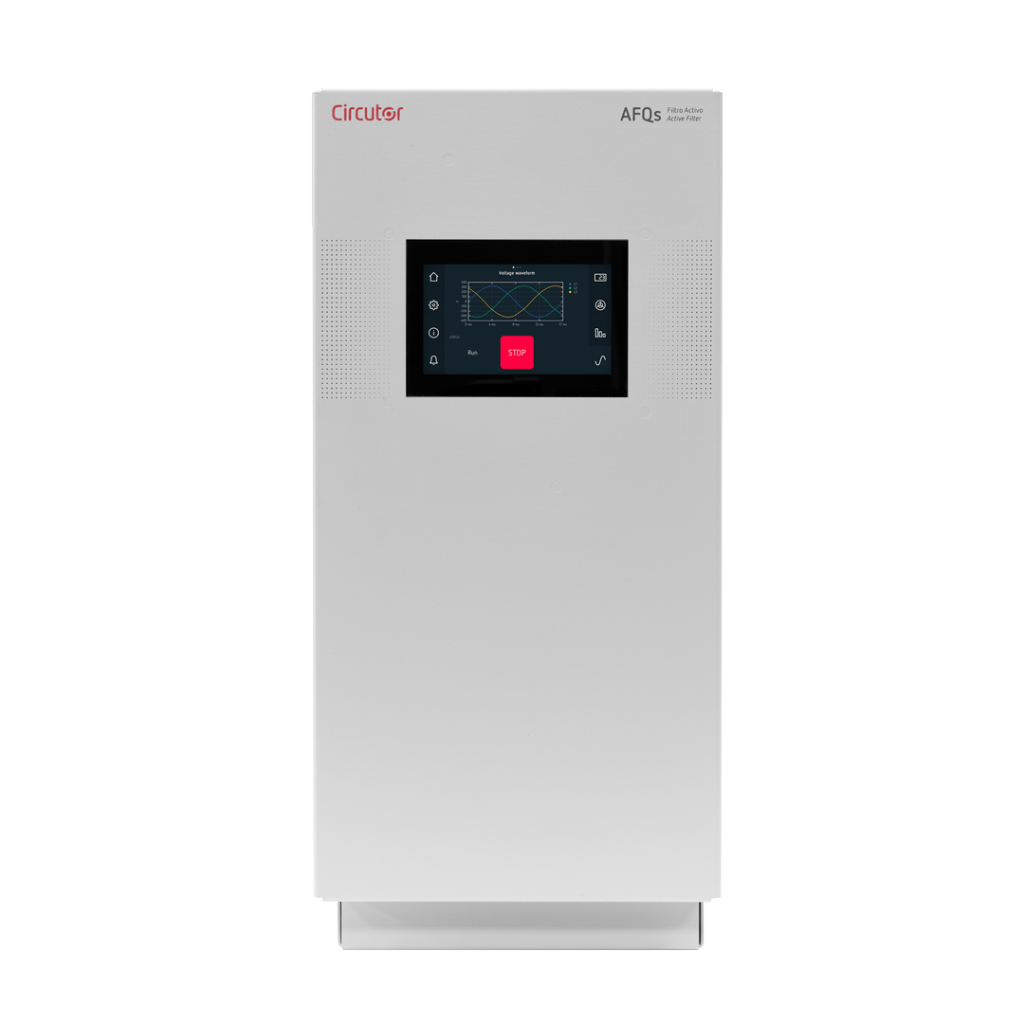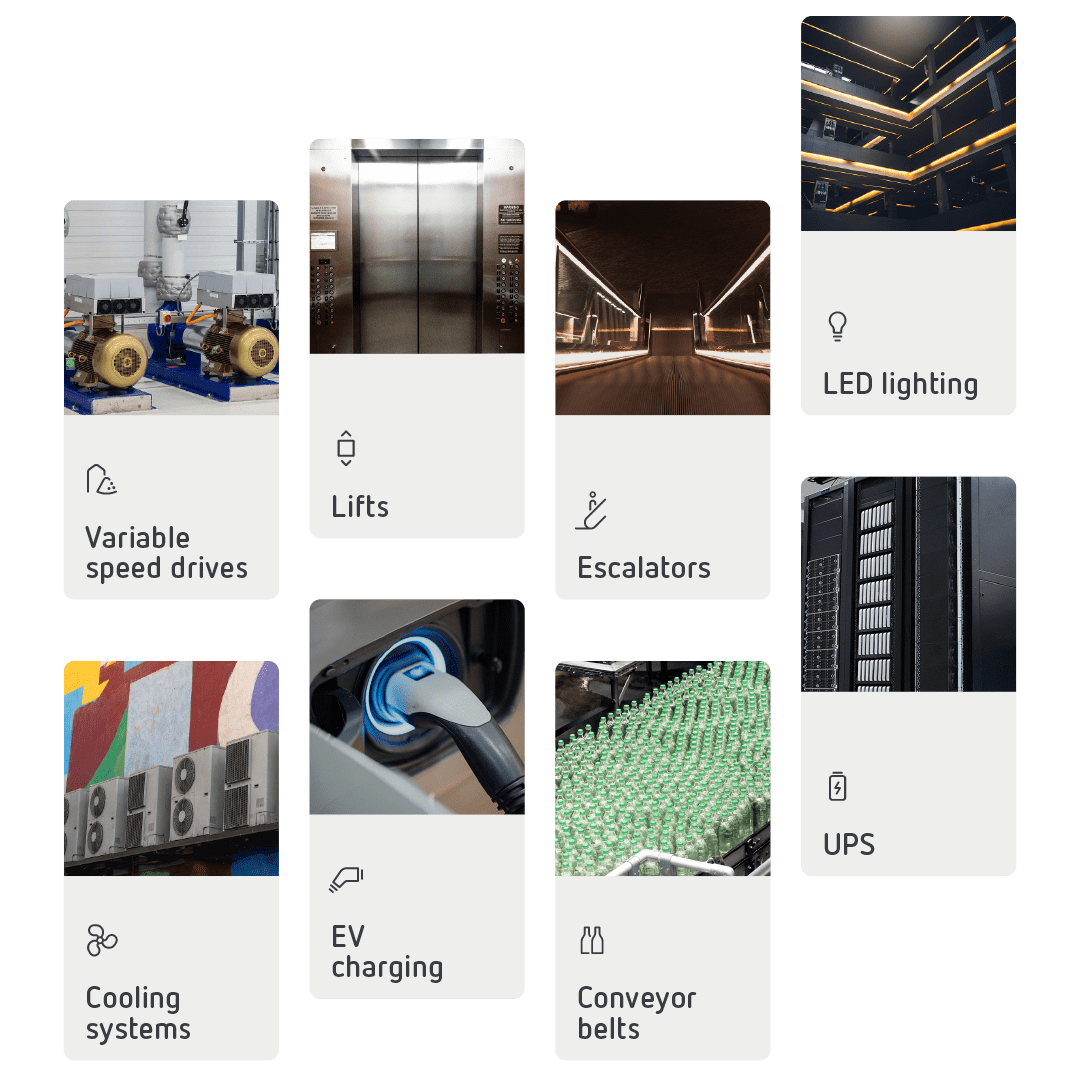
Circutor | 3 de June de 2024
Technological progress is unstoppable. And for every new product that makes life easier, the electronics inside them distort power lines, affecting the operation of the devices connected to them. We are talking about variable-speed drives in production processes, lifts that brake to gently stop at the specified floor, air conditioning and cold storage rooms, uninterruptible power supplies (UPS) that prevent devices from switching off if the power is interrupted, LED lighting systems, and an endless array of technologies all around us, which we need and use on a daily basis.
Most of the new devices installed have embedded electronics that cause unwanted distortion in power lines, affecting the proper operation of much of the equipment connected to them.
So how do we manage this distortion so we can use all these devices that generate harmonics, without harming our entire electrical system? Circutor proposes a pioneering and improved solution: AFQs active filters.

At Circutor, we have always been at the forefront of technological innovation. After years of research, we are proud to be pioneers in the use of silicon carbide (SiC) in the manufacture of advanced electrical filters. This material, known for its ability to withstand high temperatures and its resistance to temperature changes, is a semiconductor that is revolutionizing the industry.

Silicon carbide is a compound of silicon and carbon that stands out for its exceptional properties as a semiconductor. It is capable of supporting high voltage gradients and electrical fields, making it ideal for building devices based on power electronics to eliminate the harmonics present in any installation.
It allows for more efficient heat dissipation, which is crucial for the performance of active filters.
SiC maintains its shape and size even under extreme conditions, ensuring greater durability and reliability.
Circutor's active filters are more robust and durable thanks to SiC's corrosion resistance.
With a filtering efficiency of 99%, AFQs active filters guarantee a higher quality.


–
AFQs
Multifunction Active Filter with SiC technology
An AFQs active filter is, in fact, a harmonic current generator that, by using the most advanced power electronics and the most innovative control systems, is able to inject harmonic currents that are out of phase with the harmonics in the network, thus cancelling them out.
An AFQs active filter has three functions: its main objective is to reduce current harmonics, which in turn causes a reduction in voltage harmonics, but the AFQs series can also be programmed to compensate for reactive energy, both inductive and capacitive, and to balance the phase current.
Removes harmonics to clean up the waveform of the installation. Reduction of harmonic currents up to order 50 (2500 Hz). Possibility of selecting the harmonic frequencies to be filtered to achieve greater efficiency. Response <20 ms.
Helps to avoid penalties for reactive power consumption. Compensation of reactive power, both in consumption and generation, of backward (inductive) and forward (capacitive) currents. 0.7 inductive...0.7 capacitive.
Reduces the circulation of neutral current, preventing overheating, insulation losses and untimely tripping. Correction of current unbalance, improving consumption between phases of the installation.
AFQs active filters are not only better, but also smaller than their predecessors, with a 70% smaller volume. They are also lighter than other active filters, with a weight that is 40% less.
Their compact design makes them very easy to install, whether in panels with variable-speed drives right where the harmonics that can damage the rest of the electrical installation are generated, or in electrical rooms. It also features a smart power limitation system to protect itself against adverse situations, such as resonance or high temperature. Furthermore, it has an alarm and warning system to better control the status of electrical equipment.
Our AFQs active filter has a touch display with a renewed interface that is highly intuitive, more modern and that improves the user experience. With different screens, the display can be used to monitor system data such as power, harmonic distortion, voltage and current waveforms, phasors, and more. In addition, all these data are recorded and can be downloaded from its server in the network, where all the programmed parameters can be displayed. It can also be configured remotely, making it unnecessary to be next to the AFQs to know the conditions in the system. Thanks to its interface, placing an AFQs active filter in operation is very simple and takes just a few minutes to install.
Silicon carbide active filters have a wide range of applications in sectors such as industry, energy generation and critical infrastructure. Their ability to improve energy quality and reduce the losses associated with harmonics makes them essential in environments where reliability and efficiency are critical.
As demand for electricity continues to increase and the integration of renewable energy sources grows, the need for more advanced and efficient solutions to mitigate harmonics is expected to increase. In this regard, silicon carbide technology in active filters is well positioned to play a crucial role in improving energy quality and optimizing efficiency in the electrical systems of the future.

At Circutor, we are committed to progress, innovation and research in this new technology. Over five years, we have tested the feasibility and performance of silicon carbide (SiC) in our laboratories, becoming the first European manufacturer to launch this solution.
Our commitment to energy efficiency and innovation has led us to develop solutions that not only improve the performance of electrical systems, but that also contribute to a more sustainable future. Harmonic filters with silicon carbide technology are a clear example of how Circutor's technology is making a difference in the world of electrical energy efficiency.
Circutor continues to lead the way towards energy efficiency. By using silicon carbide in our filters, we are setting new standards of performance and sustainability.

WRITTEN BY CIRCUTOR